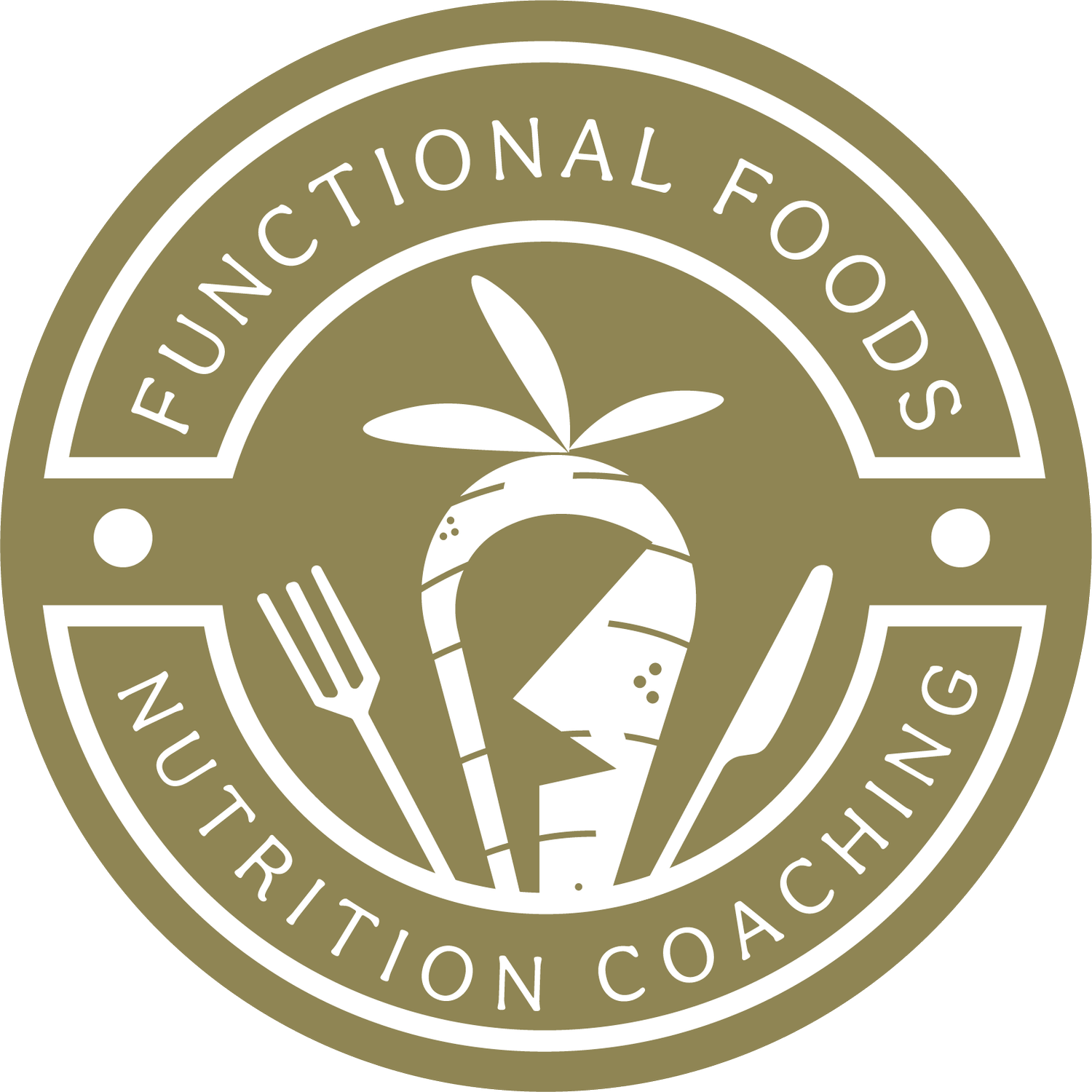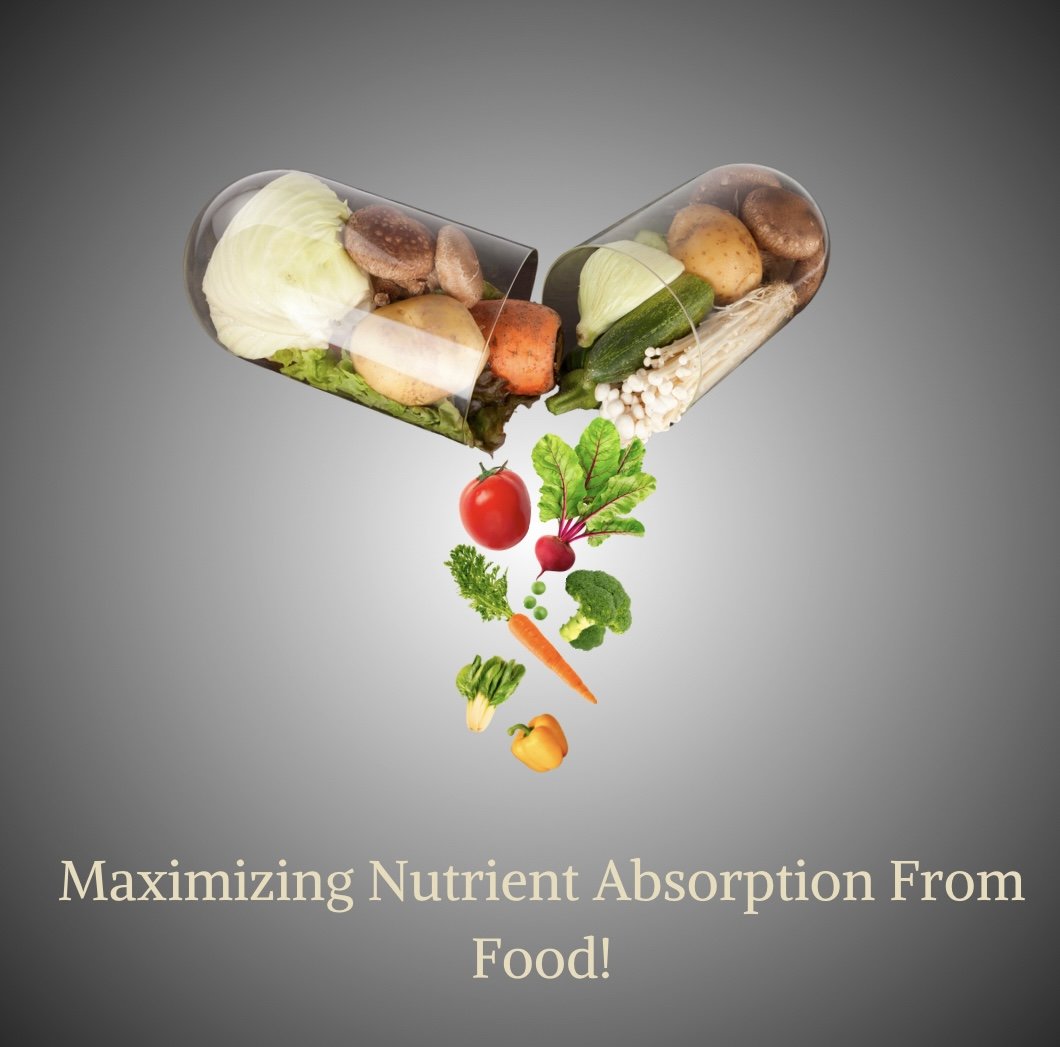How To Maximize Nutrient Absorption From Food that we eat?
Let’s face it most of us take dietary supplements to boost our nutrient intake, in order to avoid nutritional deficiencies. Did you know that there are many ways to maximise nutrient absorption from the foods we eat? In this blog post I will give you 8 tips to maximise nutrient absorption which are as effective as supplementation.
8 Tips to maximise nutrient absorption from the functional foods that we eat.
1. Adding healthy dietary fat when cooking food with fat soluble vitamins:
Eating a low fat diet may hinder the absorption of fat soluble vitamins.
For Functional Foods that are rich in fat soluble vitamins (ie: Vitamins A,D,E,K) pair these foods with a healthy dietary fat. Eg: When making soups, stews, baking or sauteing, drizzle some olive oil or avocado oil over these foods prior to cooking. Plant based foods rich in fat soluble vitamins such as butternut squash, spinach, orange sweet potato are best absorbed when combined with a healhy dietary fat.
Make sure that the healthy cooking oils that you use have a high heat tolerance to avoid oxidation.
2. Combining vitamins and minerals:
Some foods when paired together are more effective than when eaten alone. Eg: Food rich in vitamin C are best eaten raw. When foods rich in vitamin C are combined with iron rich food, iron absorption is more effective.
Eg 1: Squeezing the juice of a lemon over cooked green beans.
3. Adding culinary spices and herbs to your food:
Adding spices to your food when cooking can aid digestion and nutrient absorption. Many herbs and spices contain antioxidant, anti-inflammatory, anti-microbial, and digestive qualities due to their bioactive constituents. Herbs are naturally low calorie and nutrient dense. Adding herbs and spices to food and drinks whenever possible will greatly enhance your digestion and wellbeing. [6]
Eg 1: Cayenne pepper, thyme, basil, rosemary, sage, fresh ginger… etc.
4. Chewing Food Thoroughly:
The breakdown of food starts in the mouth. Food is broken down by the mechanical action of chewing with our teeth and mixing with saliva. This allows the digestive enzyme Amylase to be released and is the beginning of the digestive process. When you eat too quickly or on the run, this enzyme may not release properly hence digestion will be impaired. [2]
5. Soak, Sprout and Cook Grains, Legumes Nuts and Seeds:
The vitamins and minerals found in these foods are best absorbed when soaked, sprouted and or cooked. Soaking, sprouting, cooking or fermenting grains reduces the phytic acid content which can interfere with nutrient absorption. Phytic acid is a natural compound found in plants.
Eg: Soak these foods several hours prior to cooking: Lentils, Oats, Nuts and seeds. [4]
6. How you Cook Your Food Matters:
Best ways to cook your food for maximum absorption of nutrients are by Steaming, Roasting, Baking and sauteing. Steaming being one of the best methods followed by baking. [1]
7. Include Prebiotic and Probiotic Rich Foods:
Prebiotic food will nourish healthy gut bacteria and probiotic rich food contain healthy bacteria. Both are needed for the health and wellbeing of our gut. Most of the food we eat will be absorbed by the gut. Always choose natural, alive and good quality food whenever possible. When we choose poor quality processed and fast food we feed the wrong type of gut bacteria and this will lead to poor health and an impaired gut. An impaired gut will be unable to absorb nutrients from food. [5]
8. Manage Stress:
The gut-brain connection plays a role in gastrointestinal function. [3]. When we are in a chronic state of stress, the body will be unable to process nutrients extracted from our food and absorption will be impaired. By reducing our stress we can maximise nutrient absorption. Some simple ways to reduce stress are: Exercise daily, eating in a relaxed state, chewing food thoroughly, hydrate, manage sleep etc.
Key Take Away:
How we prepare, cook and eat our food makes a huge impact on nutrient absorption. Our environment and stress level also impacts how we process the foods we eat. Choose your food types, combinations and cooking methods wisely, and find ways to manage your stress.
References:
[1] https://pubmed.ncbi.nlm.nih.gov/24837935/
[2[https://www.annualreviews.org/content/journals/10.1146/annurev-food-032519-051646
[3] https://pmc.ncbi.nlm.nih.gov/articles/PMC3845678/
[4] https://pmc.ncbi.nlm.nih.gov/articles/PMC6616939/
[5] https://pmc.ncbi.nlm.nih.gov/articles/PMC8900094/
[6] https://pmc.ncbi.nlm.nih.gov/articles/PMC4227268/

